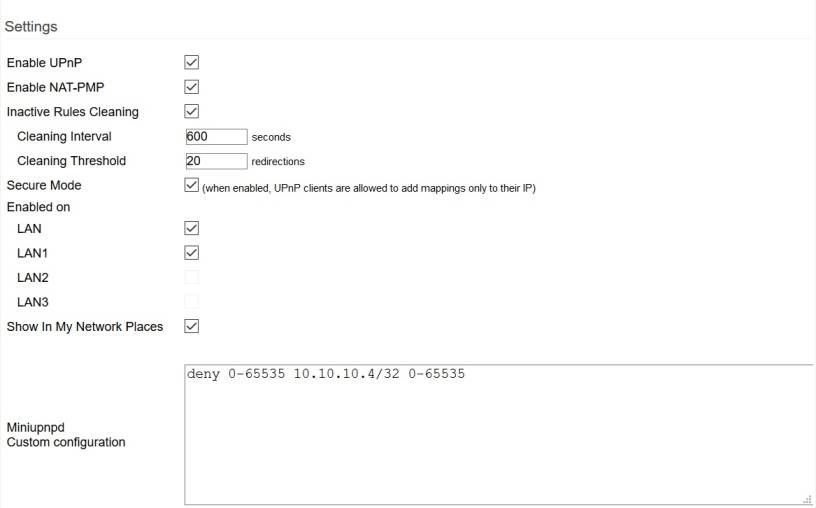User Tools
Sidebar
UPnP/NAT-PMP
UPnP
Universal Plug and Play is a controversial protocol that allows fully dynamic (automatic) port mapping from LAN IP addresses onto the Internet. It has been criticized for its poor security.
With UPnP, each network program maps its own ports automatically. In the screenshot below, WhatsApp has mapped certain ports on the WAN IP/Interface. UPnP is the original implementation of this protocol.
NAT-PMP
NAT-PMP (Port Mapping Protocol) is a newer, enhanced version of UPnP. It was designed for better compatibility with NAT routing. NAT-PMP is part of Apple's Bonjour protocol, and is often used for streaming iTunes and other media.
If you use dynamic port forwarding, you'll probably want to enable both protocols to maintain backward compatibility.
Settings
Enable UPnP: Checking this enables UPnP.
Enable NAT-PMP: Checking this enables NAT-PMP.
Inactive Rule Cleaning: Sets the timeout period to remove rules counted from the last time traffic flowed.
Cleaning Threshold: here, set the maximum number of rules to be removed by an Interval.
Secure Mode: eabling this lets only the “owner LAN IP address” trigger its own mapping/unmapping.
In other words, the client is only allowed to map an incoming port to its own IP address, not to another address.
Enable on: this allows you to enable UPnp/NATPMP only on certain VLANs.
Show in My Network Places: if enabled, makes FreshTomato appear as a gateway in Windows' browsable LAN network (WORKGROUP or HOMEGROUP).
Miniupnpd custom config: here, enter custom configuration options unavailable in the web interface.
In the image above, all UPnP requests/mappings are denied for address 10.10.10.4, the only host on that subnet.


